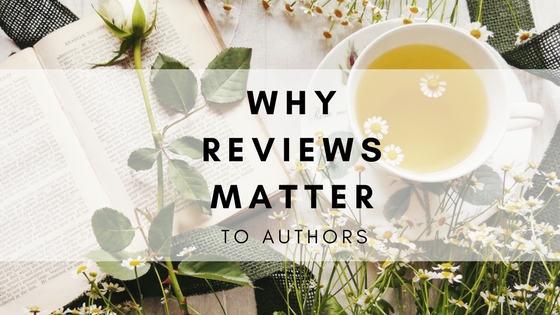
A friend and I were talking about reviews the other day. She’s a voracious reader, a member of Kindle Unlimited, and often reads several books a month, both traditionally published and self-pubbed—whatever she can find on Amazon that strikes her fancy. But she admitted to me that she hardly ever leaves reviews, to which of course I gave her a look of horror and encouraged her to please do going forward. Even if it’s just a star rating and one short sentence!
Later, she asked me what authors expect from reviews. She had come across an author complaining that the reviews she was getting were not helpful—they were just a summary of the book. She knows what the book is about—she wrote it—she wants feedback! I get it, I guess, but this person took the time to leave a review. The only response should be a resounding THANK YOU!
And ultimately…
Reviews are for readers, not authors.
I can’t remember where I heard that, but it somehow eased my mind.
As I’ve mentioned before, I’ve been listening to a lot of podcasts lately, and episode SPF-106: How To Get Reviews from Mark Dawson’s Self-Publishing Formula resonated with me. Not only does he go into tips for writers for finding and encouraging readers to leave reviews, but he also explains WHY reviews are important.
One thing Mark Dawson said is that it doesn’t matter if the review is good or bad, as long as it’s honest. Negative reviews give the page credibility, as long as the positive reviews balance out the bad ones. While getting negative reviews is never fun, and it takes some getting used to, it’s OK. It’s part of the job.
So here are some actual ways reviews of any kind help writers and, more importantly, readers too:
- Some promotional sites require a minimum number of reviews. Writers need paid promotions to reach more readers who would enjoy their books.
- Reviews give the book legitimacy and encourage others to take a chance on it. If you could buy a book with more or less reviews, and all other factors were equal, which would you choose?
- Writers can benefit from the feedback and learn if they need to market their book differently. Maybe they chose the wrong category, and the book isn’t reaching its intended audience. I know this has happened to me!
- Not only that, constructive criticism helps them to improve going forward. For example, my endings needed work, which I learned in part from non-five-star reviews. With some soul searching and research, I realized I was making promises to the reader in my stories and not fulfilling those promises. That was actionable feedback I could use moving forward.
- The good ones brighten our day!
If you have read any of my books, please consider leaving a review! Good, bad, or otherwise. It’ll be painless for both of us, I promise, and you’d be helping me immensely.
Thanks so much for being my reader!